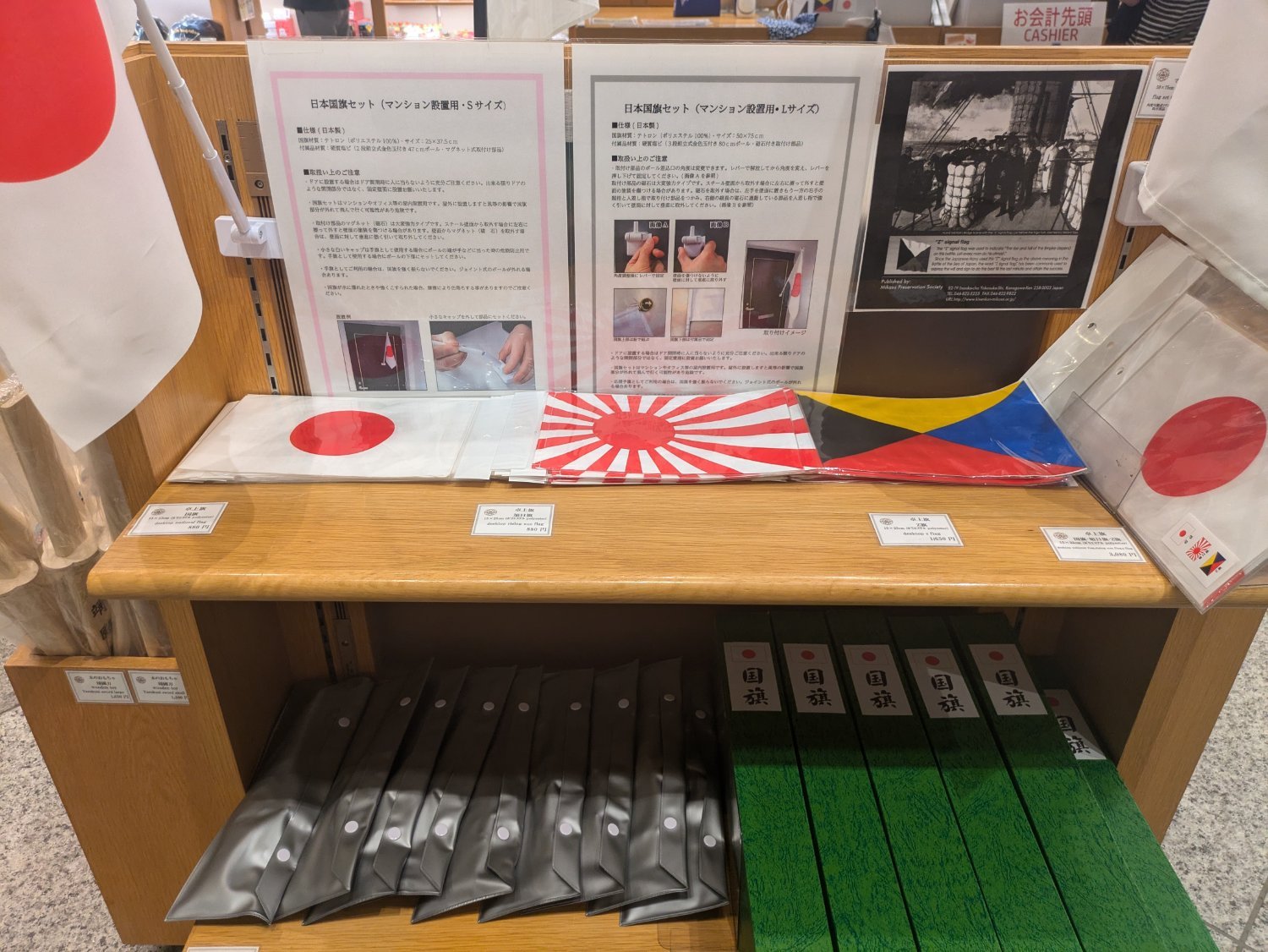Normally this community is for pictures taken in the past. I’m leaving this one up simply because I don’t know where else in the Fediverse it would go and I wouldn’t want to discourage interaction with history, but for future reference, the photos themselves should be at least somewhat old and historical, not just the subject of the photo.
Oh. My bad. Every post I have submitted here violates that then. I apologize.
I had a similar kind of eye-opening experience on my first trip to Japan, back in high school. We went to a museum in Hiroshima about… you know… Hiroshima.
The exhibits about the bomb and the aftermath were quite harrowing, if I’m honest. But there were also a couple rooms dedicated to the “greater east-Asian co-prosperity sphere”.
One panel in particular stuck in my mind: it discussed, in two or three paragraphs, how the Imperial Japanese Army went to Nanking, “uplifted” the population, faced many trials and tribulations, and eventually went home.
Colloquially, most of the rest of the world knows this campaign as the Rape of Nanking. Think Bucha, but instead of a village/small town, it’s the capital of a whole damn province (Jiangsu), with a population of about a million. About a third - yes, that’s right, roughly 300,000 - ended up enduring some combination of rape, torture, and/or murder. But the exhibit more or less portrayed that as “we went to Nanking, got a bit drunk, don’t remember much”.
That exhibit one of the main reasons I find the Japanese cultural tendency to sweep things under the rug in the interest of honoring one’s ancestors to be so incredibly caustic.
Yeah, the panel that stuck with me most was that the US had been escalating sanctions against Japan for their 3 decade long occupation of Manchuria and invasion of Indochina. Admittedly, there were certainly valid complaints against Western imperialism and racism, but the panel said
The United States with its biggest potential influence was hamstrung by isolationism. From 1935 to 1937, Congress passed three “Neutrality Acts”. President Roosevelt, deeply concerned with developments in Europe and Asia, gave the “quarantine speech” on October 5, 1937, in which he urged that it was necessary to deal with international “lawlessness,” implicitly criticizing Japan. The public opinion and Congress gradually supported strengthening sanctions against Japan, such as the abrogation of the U.S.-Japan Trade and Navigation Treaty and finally the oil-embargo, which triggered the war.
which is a bizarre way to justify Pearl Harbor.
I don’t understand what’s wrong with the image, so I click the link and get hit with a yasukuni shrine jumpscare.
Germany doesn’t have Panzers presented as a cool memorial. This image is taken at the shrine, which also has a museum. Half of the museum is a shrine to people who fought for Japan in World War 2 and many of those people are recognized war criminals.
To me, at least, starting off the museum with a refurbished plane that was used to commit war crimes was, in itself, shocking. Also the gift shop was, uhhhhh…

Like, can you imagine the same in Germany? Little Nazi flags for the kids?
I’d show you pictures of the sketchy exhibits but you’re not allowed to take photos in them.
ok for the shop but the base role of museum is to preserve history so futurs generations learn and we all advance as humanity. the will to hide the bad things from the past is just a will to hide history under the carpet, it’s like willing to erase history and is no different the rewriting it.
No, no. This museum failed to mention the millions of people killed by the Japanese Imperial army at all and blamed the war entirely on Western involvement in Japan. It even claims that Japanese troops were welcomed in Nanking. Famously, the rest of the world calls it something very different.
Seriously, just read the linked article. This isn’t a memorial to the victims of war. It glorifies atrocities and rewrites history.
I was not answering about the article but your answer that consider showing an A6M at the entrance of a museum something bad. It’s not bad, this plane existed, it’s History.
Sure, it existed. But context is necessary to understand its significance. If the context is missing or twisting accepted historic events I would say it is a bad thing.
The shrine is very much a glorification of war criminals. It’s an ongoing stumbling block to Japan’s international relations due to how they won’t stop honoring the people who were competitive with the fucking Holocaust for atrocities in WW2.
Germany doesn’t have Panzers presented as a cool memorial.
Germany has a tank musuem that shows off panzers, wtf are you talking about?
That’s gross, and I didn’t know that. That’s certainly not something I saw at the Holocaust memorial or in Dachau. It’s widely reported, however, that German schooling teaches the Holocaust thouroughly while Japan ignores the Asian Holocaust entirely. I can’t speak for the German tank museum in particular, but every museum I’ve been to in Germany made it clear that the 1928-1945 period of German History was unequivocally evil.
The article I linked in the OP mentions how this has caused persistent political divisions between Japan and it’s formerly occupied neighbors.
I thought more about this and realized the Us presents the Enola Gay without context and that’s gross too.. Though the US does have museums on the genocide of Native Americans, Japanese internment camps during world war 2, a national slavery museum and memorial, and there’s been a lot of public controversy around racist statues, so that also feels categorically different than enshrining war criminals as saints in your imperial shrine.
The panzers in the German Tank Museum are at least not presented as cool memorials. They are presented as the weapons they were. No glorification involved.
You can’t even call it revionist it’s just that they never changed. They’ve kept on teaching the history similar to how it was portrayed in wartime propaganda.
My wife is japanese and she had learnt very differently about the war than I had (growing up in a neutral country).
I taught her about the Rape of Nanking and Kamkikaze, they had never learnt that.
I don’t get it.
read the other replies and maybe click the link





